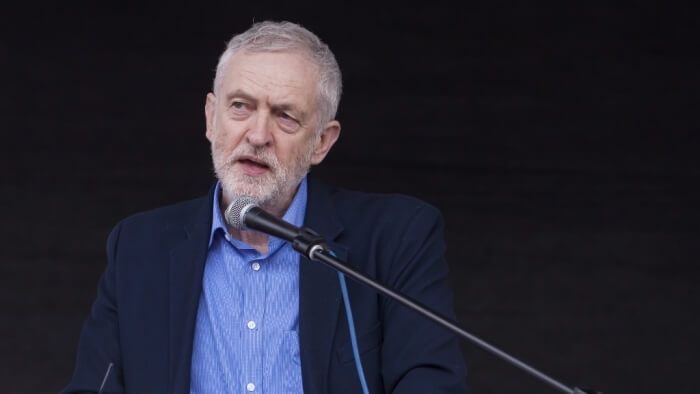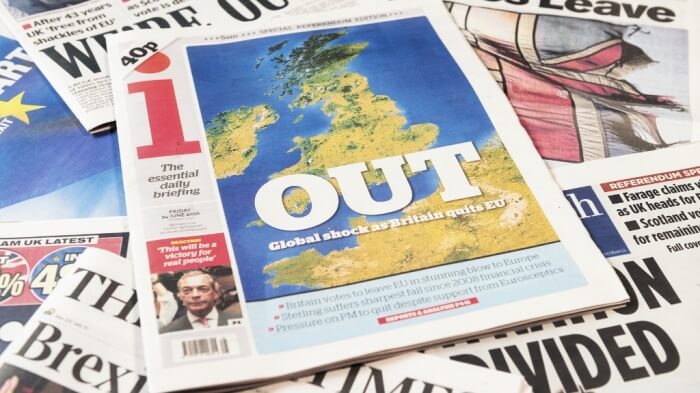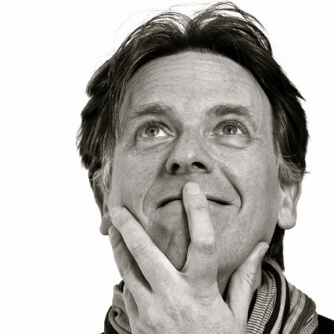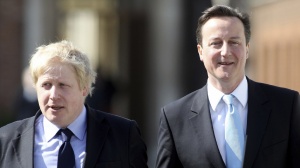Why does every politician claim to know 'the will of the people' - and why does it always agree with them?
Me, The People: The Art Of Political Storytelling
Why does every politician claim to know 'the will of the people' - and why does it always agree with them?
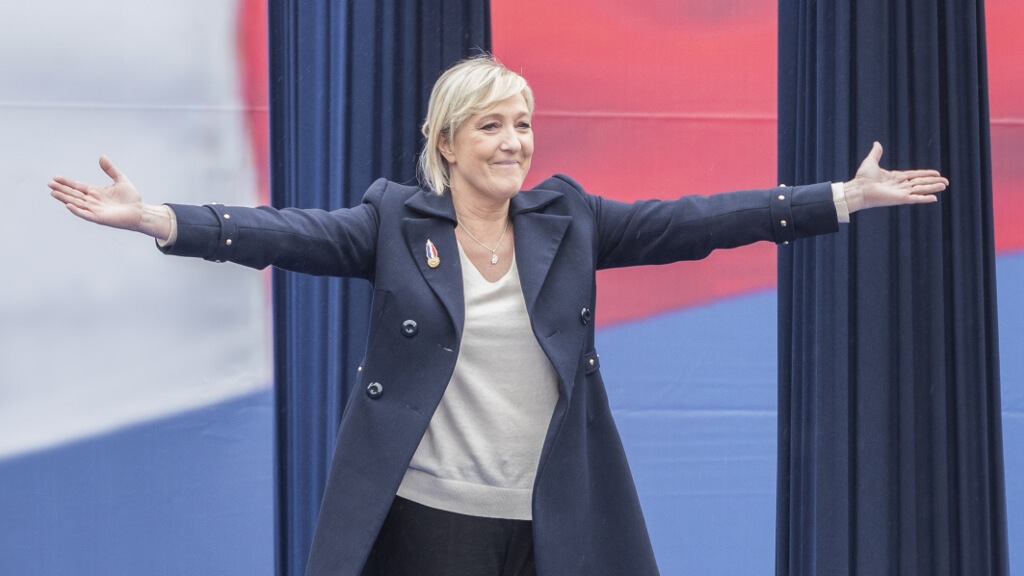
You’ve got to admire Marine Le Pen’s chutzpah. She resigns as leader of the the National Front so she can present herself as a pure and simple Presidential candidate for all the French people? It’s pure storytelling of course, a crude, sleight-of-hand illusion designed to misdirect our attention from her far-right provenance and re-position her in the mainstream.
But why sacrifice your political brand, deny your heritage and fudge your values at this stage of the game, when you’re one lunge away from supreme power? These are populist times and the People are suddenly all the rage. Politicians around the world are elbowing each other out of the way to claim they uniquely speak for the People.
This side of the Channel, Theresa May refers constantly to Brexit as the “will of the People” and herself as it’s savvy, poker-playing, defender. Corbyn is focused on the The People too. His recent campaign speech declared “It’s the establishment versus the people, and it’s our historic duty to make sure the people prevail”
Who are these people I keep hearing about? I don’t remember them being spoken about in Britain when I was growing up. Yet today they are being referred to daily.
Brexit is, apparently, the will of the people and any criticism of it is ‘trampling’ that will. Indeed, High Court judges that dare to challenge the right of the PM to implement Brexit without recourse to Parliament are ‘enemies of the people’.
And it’s not just this side of the Atlantic that use of “the people” is on the rise.
“Today” Donald Trump claimed in his inauguration address “we are not merely transferring power from one administration or another ... we are transferring power from Washington DC and giving it back to you - the people".
Who knows if the new President deliberately meant to echo the menacing words of Batman’s nemesis Bane (in the Dark Knight Rises): “We take Gotham from the corrupt! The rich! The oppressors of generations who have kept you down with myths of opportunity, and we give it back to you - the people."
But even if the plagiarism was inadvertent, there was nothing accidental about those two last words. And we should be vigilant whenever a leader uses them. Here are some reasons why.
Because the phrase is essentially meaningless. The people, is a convenient catch-all to describe what is in reality a complex mass of human beings with diverse backgrounds, views, emotions and opinions. It makes no more sense than Hitler's humanity-reducing 'volk' or Marx's 'proleteriat'. It's a crude linguistic tool, all too often wielded by politicians for crude ends.
Because it’s an elastic term but can have painfully hard boundaries. How many people have been listening to Trump or May thinking they are part of the people only to discover their membership has been rescinded, their visas denied, their residency revoked?
One of the people, yes? But not one of ‘our’ people. It’s an egalitarian term that appears inclusive until wielded by racists.
Because while complexity is inconvenient for demagogues, it's essential for democracy. Leaders increasingly tell us we can't challenge them because "the people have spoken" but that's rarely accurate.
Take the EU referendum where about 72 percent of registered voters spoke. That's about half the UK population. Just over a half of this half wanted one thing, while the other half wanted the exact opposite.
Clearly "a quarter of the people have spoken" - while truthful - doesn't have the same rhetorical ring, especially with leaders striving to position themselves as speaking for 100% of us.
Because people keep on speaking after they have voted. Since the Brexit referendum, Theresa May’s government have spoken about the people and on behalf of the people but not with the people. It’s as though winning a plebiscite obviates the need for any further contact.
If leaders like our Prime Minister were truly committed to the populace, rather than just keen to stay popular, they would remember that democracy does not mean 'one person, one vote - once!' It requires leaders who are open to an unruly, dynamic and ongoing conversation with people whose needs change and whose thinking evolves.
Because it’s a great way to fool ourselves, particularly if we agree with the politician and 'the people' they are talking about, feels like us. Unless we check our own biasses we are likely to elect leaders that share them. That's how wars start.
Because leaders may not think they are part of the people they are leading. When a leader like Trump starts talking about 'you, the people' you have to ask yourself: if you are not one of us, who the heck are you?
The preamble to the US Constitution begins blazingly with the words 'We, the People...' This was a fiery declaration by statesmen who personally identified themselves with the people and saw themselves as curators of a government that aspired to be 'for the people and by the people'.
Oh, and when a patrician like Trump says they are giving the people anything, you can be sure they are getting at least as much in return. It's self-serving masquerading as service. They say 'we' but mean 'me'.
Perhaps the time we should be most vigilant is when the speaker uses the words 'the people' and 'safe' in the same sentence. We're hearing a lot of that from our current leaders as they flail around seeking to maintain their mandate.
It’s a move straight from the Autocrat’s Playbook: A threatened people will look to a Leader for protection. So find a threat you can protect the people from. If you don’t find one, create it.
It’s a laughably obvious tactic - but that doesn’t mean it isn’t effective.
The Leave campaign painted Europe as a threat – to our jobs, our sovereignty, our independence, our very way of life. Vote leave, we were told, and they’d keep us free from harm.
When they looked like they were failing to galvanise support, they flooded the media with the messages that immigration was ‘at breaking point’ and hordes of EU-entitled immigrants from Turkey were imminently about to overwhelm our shores.
In a similar gambit, Trump’s administration says it wants vastly to increase Defence spending 'to keep the people safe' at a time when daily domestic life is vastly more lethal than any military or terrorist threat.
89,886 US citizens died from gun crime, domestic violence, road accidents and suicide in 2015. Only 19 from terrorism-related activities. Is it really protection when lavishing money on weaponry will impoverish other agencies (labour, health, housing, environmental protection, education) that support the very people the government purports to care about?
Let’s be generous. Let’s imagine our leaders do have ‘the people’s’ best interests at heart. Let’s hope we don’t have cartoon villains at the helm. Even so, we should stay vigilant as leaders spout on about ‘the people’.
Remember Walter White the anti-hero of Breaking Bad whose every effort to preserve his family actually destroys it? To paraphrase his long-suffering wife, Skyler, before she divorces him:
“Someone has to protect the people from the man – or woman - who protects the people.”
David Pearl, business innovator and author of Story for Leaders, published in paperback by The London Business Forum, May 2017 £14.
Thanks for signing up to Minutehack alerts.
Brilliant editorials heading your way soon.
Okay, Thanks!